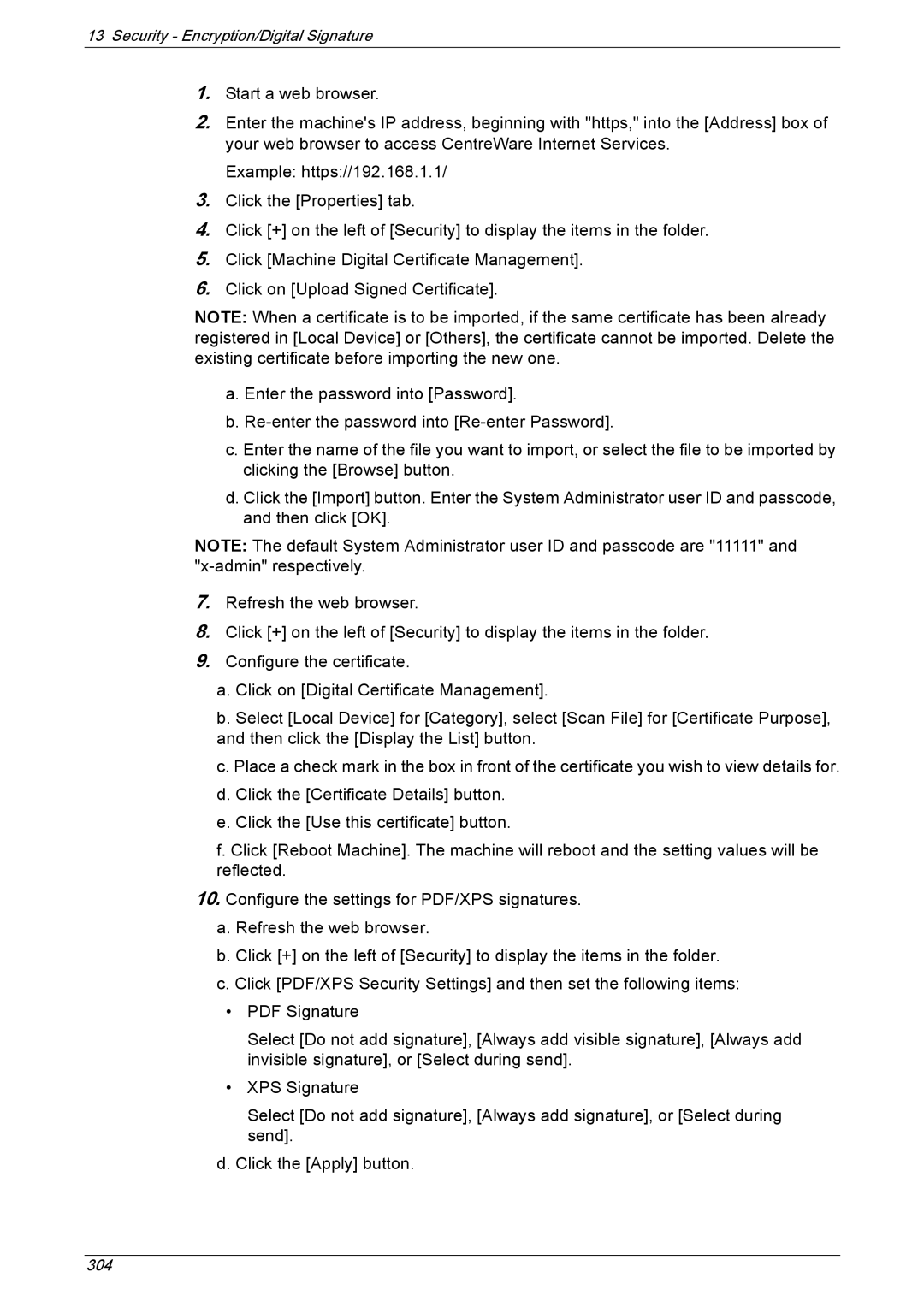
13 Security - Encryption/Digital Signature
1.Start a web browser.
2.Enter the machine's IP address, beginning with "https," into the [Address] box of your web browser to access CentreWare Internet Services.
Example: https://192.168.1.1/
3.Click the [Properties] tab.
4.Click [+] on the left of [Security] to display the items in the folder.
5.Click [Machine Digital Certificate Management].
6.Click on [Upload Signed Certificate].
NOTE: When a certificate is to be imported, if the same certificate has been already registered in [Local Device] or [Others], the certificate cannot be imported. Delete the existing certificate before importing the new one.
a. Enter the password into [Password].
b.
c.Enter the name of the file you want to import, or select the file to be imported by clicking the [Browse] button.
d.Click the [Import] button. Enter the System Administrator user ID and passcode, and then click [OK].
NOTE: The default System Administrator user ID and passcode are "11111" and
7.Refresh the web browser.
8.Click [+] on the left of [Security] to display the items in the folder.
9.Configure the certificate.
a.Click on [Digital Certificate Management].
b.Select [Local Device] for [Category], select [Scan File] for [Certificate Purpose], and then click the [Display the List] button.
c.Place a check mark in the box in front of the certificate you wish to view details for.
d.Click the [Certificate Details] button.
e.Click the [Use this certificate] button.
f.Click [Reboot Machine]. The machine will reboot and the setting values will be reflected.
10.Configure the settings for PDF/XPS signatures.
a.Refresh the web browser.
b.Click [+] on the left of [Security] to display the items in the folder.
c.Click [PDF/XPS Security Settings] and then set the following items:
•PDF Signature
Select [Do not add signature], [Always add visible signature], [Always add invisible signature], or [Select during send].
•XPS Signature
Select [Do not add signature], [Always add signature], or [Select during send].
d.Click the [Apply] button.
